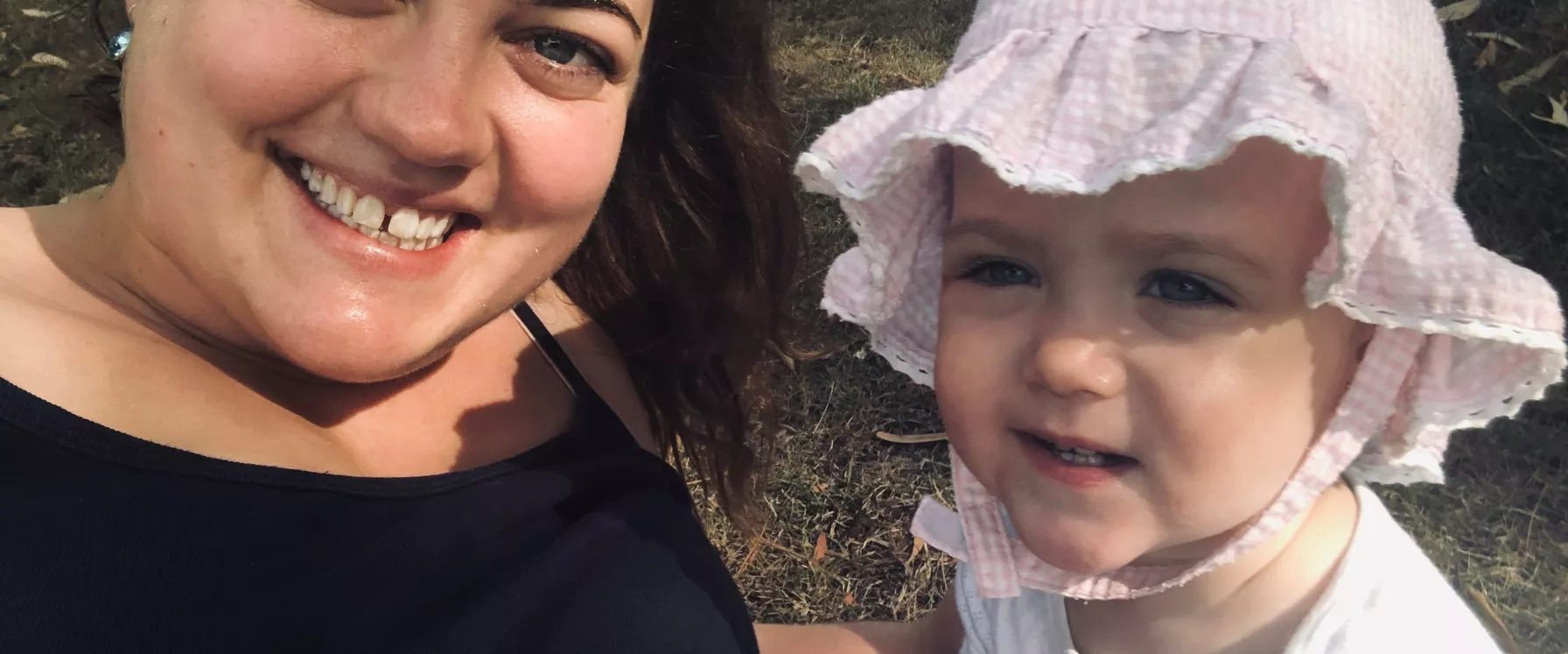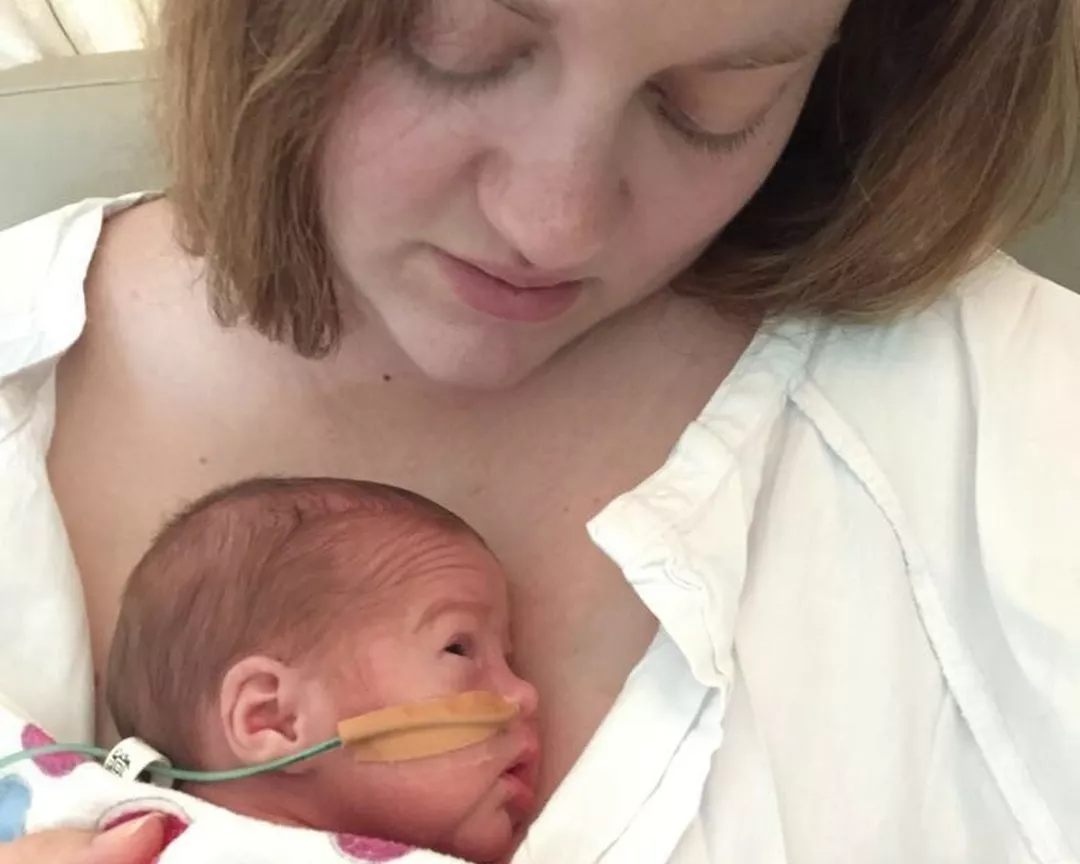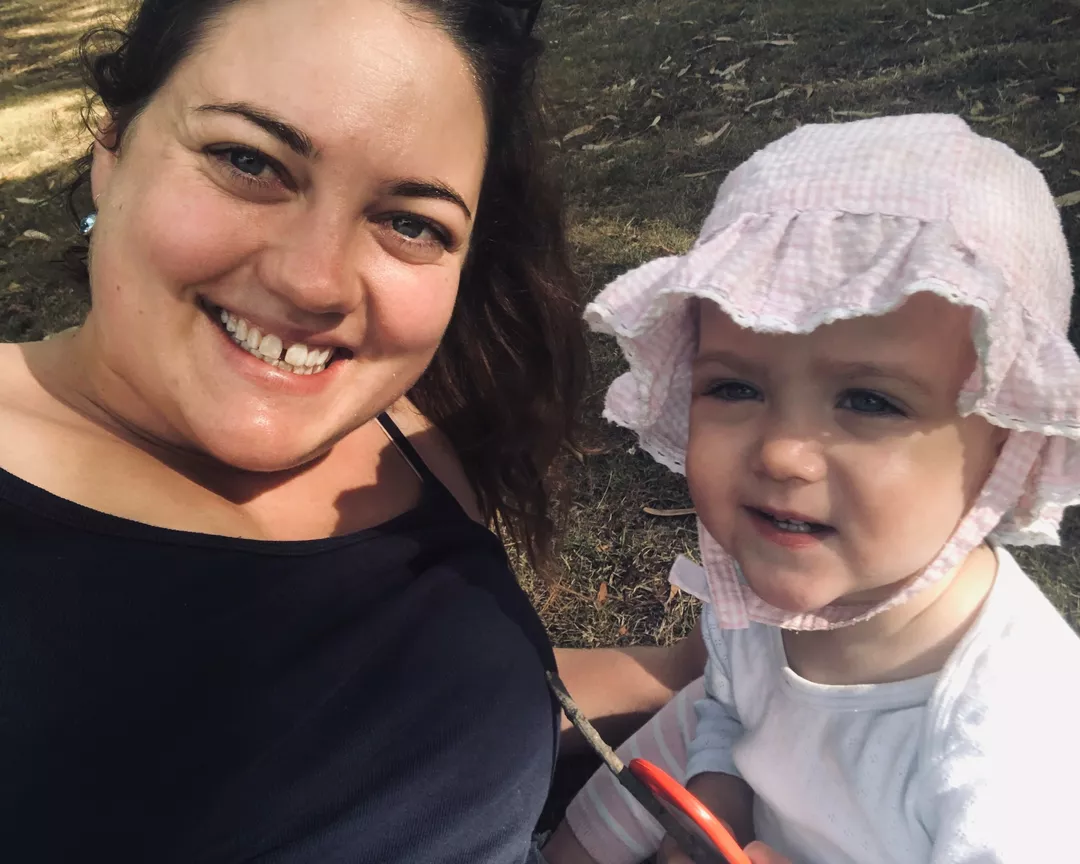“I had no idea it could get so serious so quickly.”
Renee Harvey noticed that something wasn’t quite right at 29 weeks into her pregnancy, when her feet and ankles started swelling more than expected.
A blood pressure check with her doctor showed that her levels were higher than normal, so Renee was sent off for testing and monitoring.
“But they couldn’t figure out what was wrong. It was just a case of going home, going back to the hospital if I noticed more symptoms, get tested, then repeat,” Renee says.
Deciding to take matters into her own hands, Renee regularly checked her blood pressure on her home monitor. It was this that saved her.
One night, Renee’s monitoring showed her blood pressure was extremely high, and she knew something was wrong. She went to hospital and was immediately admitted. Two days later, she gave birth to her daughter Amelia.
It had been just two and a half weeks since she had first noticed symptoms. “I was diagnosed with preeclampsia just two days before giving birth, so it all happened very quickly.
Renee was assured throughout her pregnancy that everything was okay, even though she knew something wasn’t right. She adds, “It was really hard to find someone to take me seriously”. She felt her concerns were dismissed due to it being her first pregnancy.
“I think people can often say you're just going to worry yourself and get anxious about it, but it was something that was worth being anxious about.”
As Amelia was born prematurely, she was only the size of a 28-week gestation baby and had breathing issues. She spent her first 10 days of life at The Royal Children’s Hospital in Melbourne undergoing treatment. She spent her first six months in and out of hospital for complications related to her premature birth. Eventually, Amelia stabilised, started growing well and is now healthy.
I was also in and out of hospital for my preeclampsia while Amelia was in hospital.
While Renee’s symptoms eventually ceased and her blood pressure returned to normal levels after about six weeks, she is now keenly aware of how preeclampsia can affect mothers, babies and families.
“It’s good to have opportunities to keep talking about it and getting people more aware of it.”
How is HRI helping?
HRI is tackling the urgent problem of cardiovascular diseases such as preeclampsia from a broad range of research angles. Our Vascular Immunology Group is currently investigating ways that provide for safer prolongation of pregnancy without premature delivery. In addition, they are examining the role of aspirin and its effect in preeclampsia prevention. In partnership with research groups in the USA and Sweden, the team is also investigating the effect and safety of the new treatments targeting the placenta, for use in early severe preeclampsia.
Cardiologist Dr Clare Arnott is a Visiting Scientist with HRI who has established NSW’s first Women’s Heart Clinic that focuses on gender-specific risk factors such as hypertensive disorders of pregnancy. The clinic approaches care from a holistic angle, including lifestyle and dietary modification, and general care, and is overseen by female physicians. Dr Arnott leverages her science research for her initiative using HRI’s state-of-the-art facilities.



